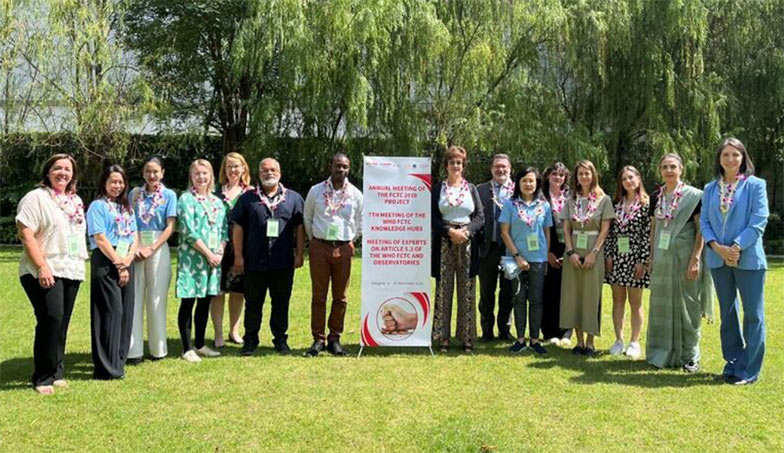
Tobacco industry interference is the greatest barrier to progress in reducing tobacco’s deadly impact. So, it was fitting that this was a key theme of three concurrent tobacco control meetings organised by the Convention Secretariat and the WHO FCTC Knowledge Hub on Article 5.3, in Bangkok, Thailand, in November 2024.
The WHO FCTC Knowledge Hub on Legal Challenges is hosted by the McCabe Centre, and we attended the annual convening of the WHO FCTC Knowledge Hubs and participated in this series of meetings.
Head of the Convention Secretariat, Dr Adriana Blanca Marquizo, also joined the convening, which provided rich opportunities to share experiences, to learn more about other Knowledge Hubs and their work plans, and to discuss how to safeguard the Knowledge Hubs' work from tobacco industry interference, while improving the quality, scope and efficiency of the assistance that is provided to the Parties.
Milestones were celebrated such as the relaunch in May 2024 of the WHO FCTC Knowledge Hub on Smoke Free Environments and Tobacco Cessation, based in Uruguay. The Knowledge Hub’s revised focus of work will be on implementation of Article 8 (protection from exposure to tobacco smoke) and Article 14 (demand reduction measures concerning tobacco dependence and cessation) of the WHO FCTC.
The Knowledge Hub on Legal Challenges was also pleased to have celebrated 10th anniversary as a Knowledge Hub over the past year and we showcased our new animated video here.
The annual Knowledge Hub meeting was convened alongside a workshop on tobacco industry interference organised by the Knowledge Hub on Article 5.3 hosted by Thammasat University in Thailand, for 16 countries participating in the FCTC2030 project, as well as a meeting of the Global Observatories. These concurrent meetings provided a wonderful opportunity to connect with Parties from FCTC2030 countries such as Fiji, Lao PDR, Timor Leste, Tanzania and Ghana, including some alumni from past McCabe Centre trainings.
Hayley Jones, Director of the Knowledge Hub on Legal Challenges, said:
“It was fantastic to exchange country experiences on countering tobacco industry interference, by using law and policy, with many Parties seeking to strengthen their approaches. Legal understanding is essential to translate these commitments into action and better protect public health policy from industry interference.
“Knowledge Hubs play a vital role in supporting implementation of the WHO FCTC and over the past year have collaborated on a range of activities, from joint webinars to shared publications. This collaboration will continue to grow and provide targeted support for Parties,” she added.
The next Conference of the Parties to the WHO FCTC, to be held in Geneva in November 2025, was also a key item of discussion. The Knowledge Hubs agreed to again collaborate on a side event showcasing their key activities and opportunities for Parties to access support.
The WHO FCTC Knowledge Hubs play an important role in progressing tobacco control by assisting Parties and the Convention Secretariat across various technical areas outlined in the Convention.
These Hubs provide essential evidence and information, facilitate knowledge-sharing and capacity building, and connect with global experts to advance tobacco control measures, among others.
To date, the Convention Secretariat has established nine Knowledge Hubs, covering each WHO Region. The Secretariat provides operational support and coordination to ensure that the Hubs meet the mandates from the Conference of the Parties and address specific requests from Parties.
To support these efforts, regular coordination meetings are organised among this network, offering a valuable platform for information exchange, collective learning and collaborative work.
You can read more about Knowledge Hubs here: